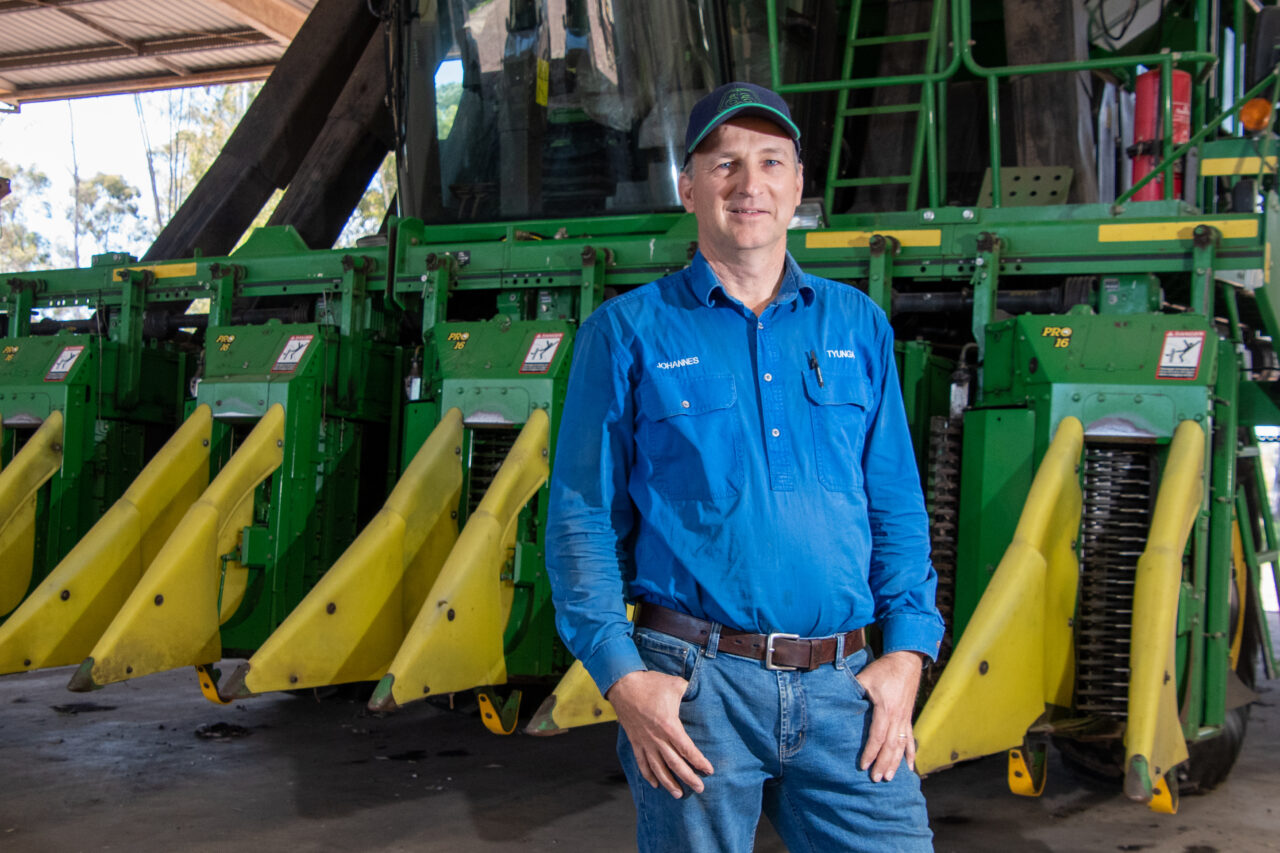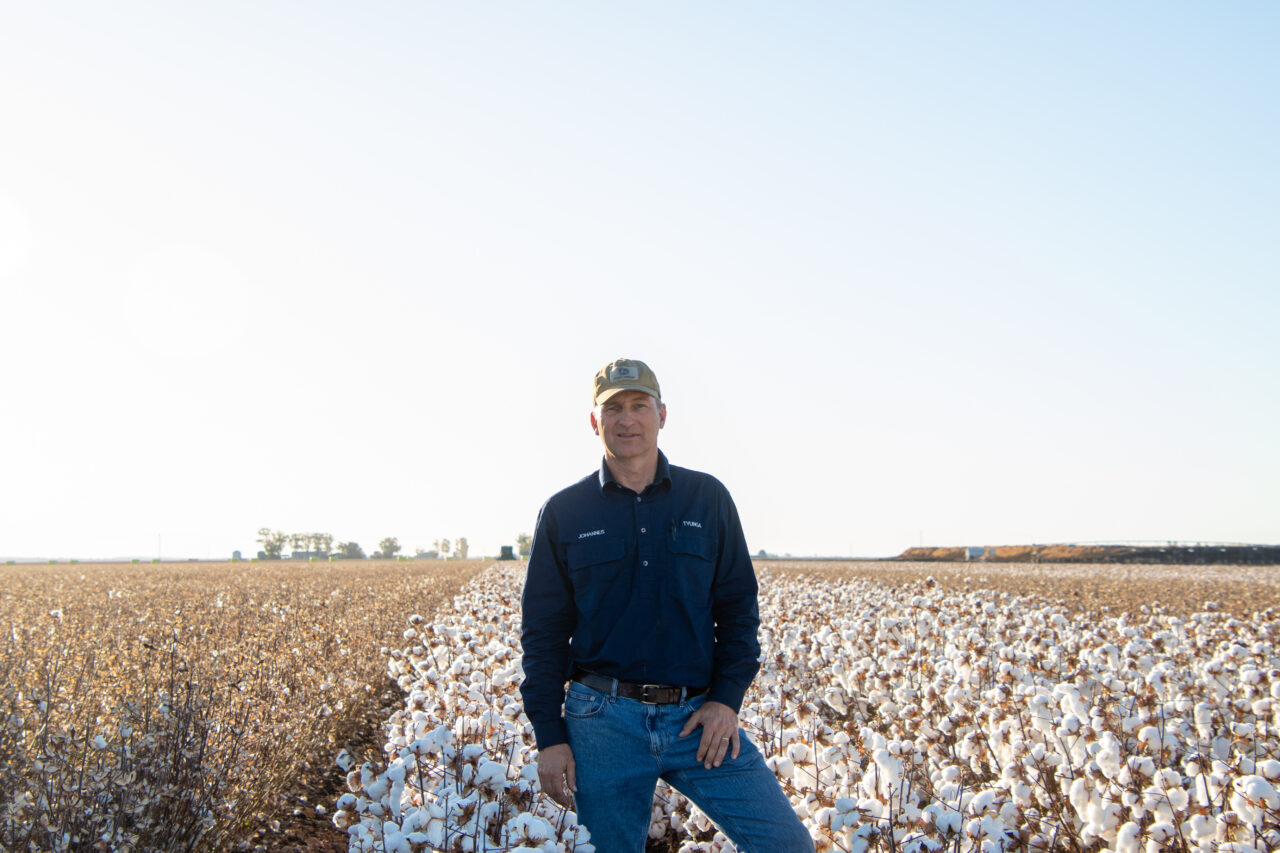Looking back at when he first started farming, Johannes Roellgen is in awe of how much the Australian cotton industry and its farmers have changed.
Cotton farmers have pushed farming practices to be new, innovative and forward thinking and welcomed a genetically modified seed - all with the goal to produce more cotton with less resources.
When Johannes and his wife Scarlett started growing cotton at their Darling Downs property 30 years ago, the farming practices didn’t meet their expectations, lifestyle and overall farming operation.
Cotton farming was tough. Pest numbers were large, synthetic fertilisers were heavily relied upon and unpredictable seasons were greatly impacting the yield each year.
Fast forward to 2023, and the Roellgen family are regarded as among the best cotton farmers in Australia having recently won the award for Bayer 2023 Cotton Growers of the Year.
Their farming practices today at ‘Tyunga’ on the Darling Downs are efficient, sustainable and rewarding.

“It’s definitely good to be recognised, but I feel it really is an effort across our industry and our district,” Johannes said.
“On the Darling Downs we are a collaborative bunch. When there is an issue, we work together. The award is as much an individual, team and a collaborative award. It highlights as an industry there is technology, advancements and collaboration, and shows what can be achieved when we all work together.”
During the 2022-23 season, Johannes, with the assistance of his agronomist Matthew Holding, did not spray for pests across the majority of his crop.
Instead, they allowed the beneficial insects, also known as Integrated Pest Management (or IPM) to do the work for them.
“We’re sticking to IPM principles and holding off spraying so we can give the beneficial insects a greater chance to breed and do their thing in our crop, without compensating for less yield,” Johannes said.
Johannes and Scarlett moved from Germany to Australia 30 years ago, and farm 1100 hectares of both irrigated and dryland cotton.
All three of their children have worked on the farm as bug checkers, and Johannes is excited that his eldest daughter will be returning to the farm later this year.

Despite the challenges of drought and floods during the years, they have consistently improved their yield.
The Roellgens are passionate about reducing chemical use on their farm. They have swapped synthetic fertilisers for feedlot manure; they are using 40% less nitrogen than the industry average and have also improved their water use efficiency through laser levelling paddocks and investing in lateral irrigation infrastructure.
As a “technically minded” farmer, Johannes is most happy solving issues, whether it’s to do with irrigation or adapting farm machinery for their specific needs.
And for the future, Johannes and Scarlett are working on irrigation infrastructure to further enhance their water use efficiency as well as utilising solar power on pump stations and taking better records in energy footprint and carbon assessments.
